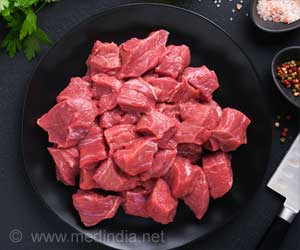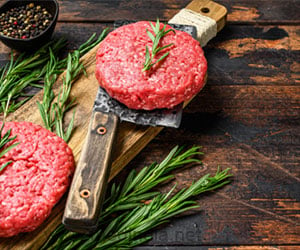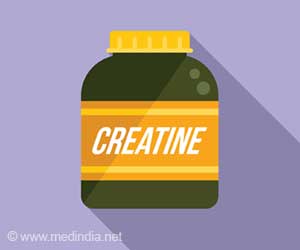Explore the impact of red meat consumption on cardiovascular health and the pros and cons of including it in your diet.
- Red meat is rich in vitamins, minerals, and proteins but has been associated with increased risks of heart disease, colon cancer, and diabetes
- Consuming more red and processed meat has been linked to smaller ventricles, stiffer arteries, and poorer heart function
- While red meat contains health-promoting nutrients, cooking at high temperatures can produce cancer-causing chemicals, particularly in processed meats
Nutritional Merits and Health Concerns of Red Meat
White meat includes chicken, turkey, fish, and other bird meats. However, there is ongoing disagreement about the nutritional value of red meat. While it is true that meat is high in vitamins (B-12), minerals, and proteins, several studies have indicated that a high intake of red meat is related to an increased risk of heart disease, colon cancer, and diabetes, as well as an increased risk of dying from these diseases (1✔ ✔Trusted SourcePotential health hazards of eating red meat
Go to source).
Red Meat's Effects on Cardiovascular Health
According to Dr. Thejaswi N Marla, Cardiothoracic and Vascular surgeon at Fortis Malar, researchers discovered that consuming more red and processed meat was associated with worsening health; specifically, individuals who consumed more meat had smaller ventricles, stiffer arteries, and poorer heart function. Red meat consumption raises blood cholesterol, which increases the risk of heart attack. Heart attacks are more likely to occur in red meat eaters due to hereditary or environmental causes, or a combination of both (2✔ ✔Trusted SourceRed meat consumption and all-cause and cardiovascular mortality: results from the UK Biobank study
Go to source).
Pros and Cons of Red Meat Consumption
"Red meat may contain health-promoting nutrients." According to the National Institute of Health (NIH), several varieties of red meat are good sources of bioavailable heme (iron) that the body can easily use. However, high temperatures used to cook red meat have been related to the development of cancer-causing chemicals, according to the study. Polycyclic aromatic hydrocarbons (PAHs) are generated during this process, and PAHs are hazardous to human health since they are carcinogens," adds Thejaswi. Many of the same lifestyle choices that lower the risk of heart disease also lower the risk of a few cancer forms, according to doctors. It has been noticed that processed meat is frequently more dangerous than fresh meat (3✔ ✔Trusted SourceBenefits and Risks Associated with Meat Consumption during Key Life Processes and in Relation to the Risk of Chronic Diseases
Go to source). References:
- Potential health hazards of eating red meat - (https://pubmed.ncbi.nlm.nih.gov/27597529/)
- Red meat consumption and all-cause and cardiovascular mortality: results from the UK Biobank study - (https://pubmed.ncbi.nlm.nih.gov/35220441/)
- Benefits and Risks Associated with Meat Consumption during Key Life Processes and in Relation to the Risk of Chronic Diseases - (https://pubmed.ncbi.nlm.nih.gov/35885304/)
Source-Medindia













